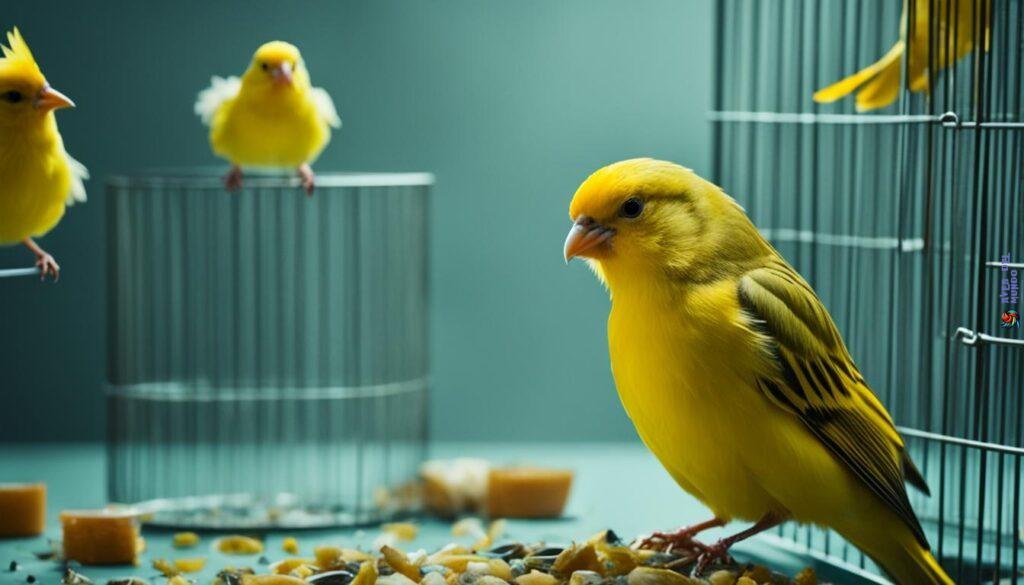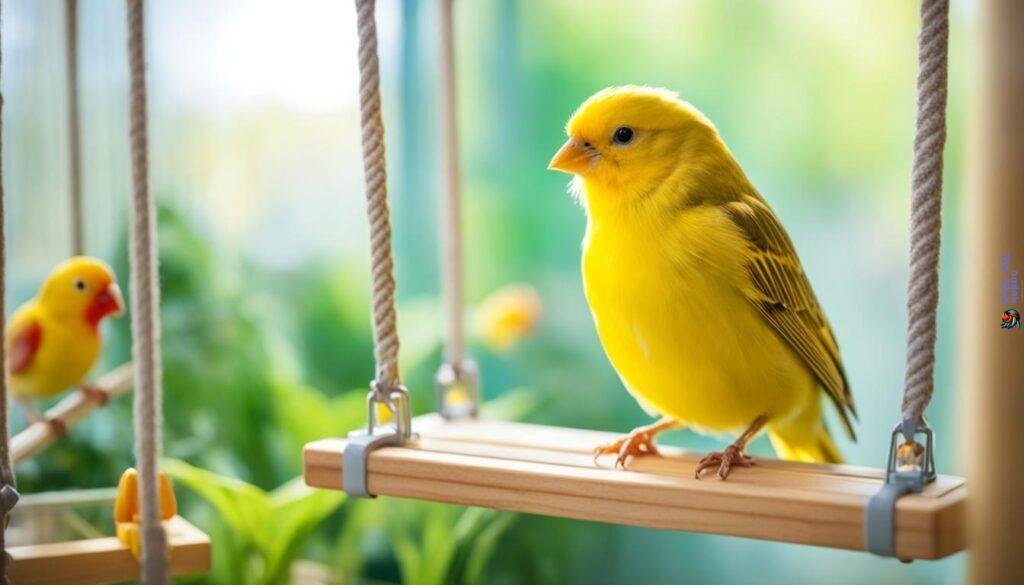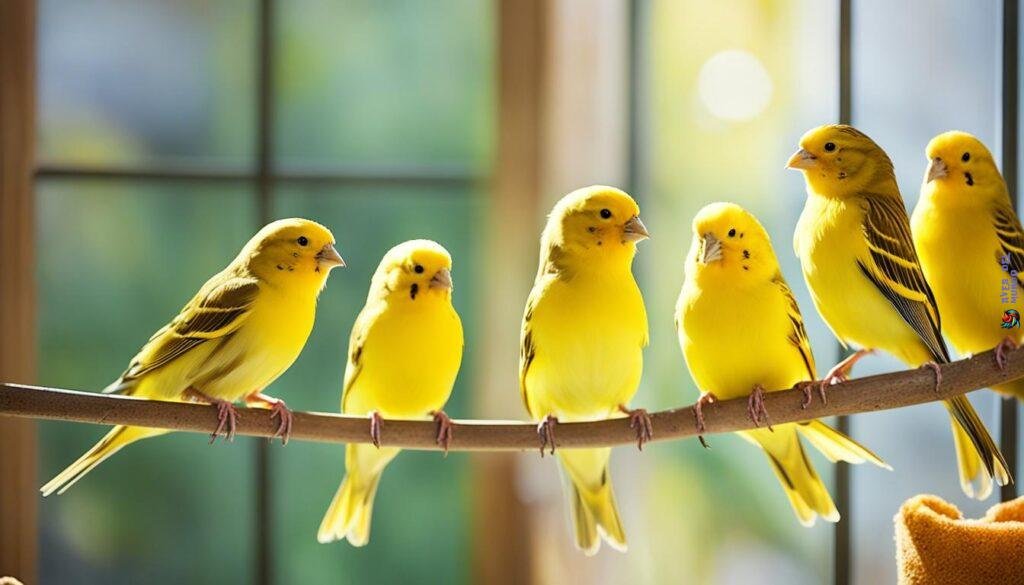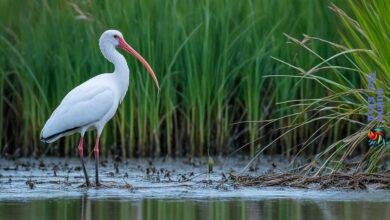Did you know that canary birds are not only known for their vibrant colors but also for their melodious singing? These beautiful birds require proper care to thrive as pets and bring joy to your home. In this article, we will provide you with essential tips and guidelines for canary bird care, including their different types, singing behavior, dietary needs, lifespan, habitat requirements, and color variations. Whether you are a first-time bird owner or looking to enhance your knowledge, this comprehensive guide will ensure your canary bird stays healthy and happy.
Canary Species Overview
Canaries are a diverse group of birds, with over 200 known breeds that exhibit a variety of unique characteristics. Whether you’re drawn to their vibrant colors, melodious songs, or distinctive shape and size traits, there is a canary species that will capture your heart.
Let’s explore some common canary species:
1. Yellow Canaries
Yellow canaries are perhaps the most recognizable canaries due to their bright and sunny plumage. They are a popular choice among canary enthusiasts for their cheerful appearance and pleasing vocalizations.
2. Red-Factor Canaries
Red-factor canaries are known for their stunning red or orange-colored feathers. Their unique coloration is a result of a specific genetic mutation that affects their pigmentation. This distinctive feature makes them a favorite among canary breeders and collectors.
3. Variegated Canaries
Variegated canaries display a captivating combination of colors and patterns in their plumage. Their feathers may have patches, spots, or streaks of different hues, creating a visually striking appearance. These canaries are highly sought after for their aesthetic appeal.
Canary Types:
| Type | Description |
|---|---|
| Song Canaries | Bred specifically for their melodious songs, song canaries produce a wide range of musical tunes. Each breed has its distinct song pattern and style, making them the perfect choice for those who appreciate the melodic side of canaries. |
| Color Canaries | Color canaries are bred for their unique feather colors. These canaries exhibit a wide spectrum of hues, including vibrant reds, intense blues, and striking yellows. They are a delight for anyone who enjoys the beauty and diversity of nature’s colors. |
| Type Canaries | Type canaries are bred for specific shape or size traits. They may have elongated bodies, crests, or different forms that make them stand out amongst other canary breeds. These birds are highly valued for their distinctive physical characteristics. |
Male canaries, regardless of the breed, are known for their mesmerizing singing ability. They use their melodious tunes to attract female canaries during the breeding season.
Now that we have explored the different canary species and their characteristics, let’s delve deeper into canary care and the essentials you need to provide for your feathered friend.

Canary Care and Difficulty
When it comes to caring for canaries, you’ll be pleased to know that it’s relatively easy, making them ideal pets for beginners. With a little effort and attention to their needs, these beautiful birds can provide companionship and joy for many years to come. On average, canaries have an impressive lifespan of 10+ years when properly cared for.
As with any pet, canaries require specific care and attention to thrive. Here are some key aspects of canary care:
- Diet: Canaries have a grain-based diet consisting of high-quality pelleted canary food. Supplementing their diet with millet spray and offering occasional treats is recommended.
- Habitat: Canaries need a minimum habitat size of 18″ L x 14″ W x 18″ H to provide enough space for flying and exercise. It’s important to set up their habitat with essential supplies such as food and water dishes, perches, toys, and grooming supplies.
- Healthcare: Regular check-ups with a veterinarian who specializes in avian care are essential to monitor the health and well-being of your canary.
Providing the Right Environment
Creating a suitable habitat for your canary is one of the most important aspects of their care. The table below highlights key elements to consider:
| Aspect | Recommendation |
|---|---|
| Enclosure Size | Minimum 18″ L x 14″ W x 18″ H |
| Enclosure Material | Closely spaced bars to prevent escape or injury |
| Temperature | Avoid drafty areas and extreme temperature changes |
| Habitat Mates | Keep canaries in compatible opposite-sex pairs or housed separately |
| Bedding | Provide suitable bedding material for comfort |
| Lighting | Ensure a well-lit environment with appropriate lighting |
| Décor and Accessories | Include perches, toys, and other enrichments for mental stimulation |
Remember to clean and maintain your canary’s habitat regularly to ensure a healthy and hygienic living environment.

«The satisfaction of providing a suitable environment for your canary is immeasurable. Seeing them thrive and sing their melodious tunes brings endless joy.»
By following these guidelines and providing the best possible care for your canary, you can enjoy a long and rewarding relationship with your feathered friend.
Canary Habitat Essentials
Providing the right habitat for canaries is crucial for their well-being. By creating a suitable environment, you can ensure that your canary remains healthy and happy. Here are some essential considerations when it comes to canary habitats:
Choosing the Right Enclosure
The ideal canary habitat should be at least 18″ L x 14″ W x 18″ H to provide ample space for your pet. It is important to choose an enclosure with closely spaced bars to prevent escape or injury. A secure and well-constructed cage will provide a safe haven for your canary.
Habitat Size
A spacious habitat allows your canary to fly and exercise freely. The recommended minimum size for a canary habitat is 18″ L x 14″ W x 18″ H. This will give your bird enough room to move around comfortably and engage in natural behaviors.
Homemade Habitats and Materials
Homemade habitats are not recommended for canaries due to potential health risks. Certain materials used in DIY enclosures may contain toxins or be harmful to your bird. It is best to purchase a professionally designed canary cage to ensure the safety and well-being of your pet.
Habitat Temperature
Canaries are sensitive to temperature changes, so it’s important to keep their habitat in a well-regulated environment. Avoid placing their cage in areas with extreme temperature fluctuations or drafts. The ideal temperature range for canaries is between 65°F and 75°F (18°C to 24°C).
Habitat Mates
Canaries are generally solitary birds and should be housed alone or in compatible opposite-sex pairs. They prefer to have their own space and may become stressed if forced to share their habitat with other birds.
Bedding, Lighting, and Décor
Choose bedding material that is safe, comfortable, and easy to clean. Opt for bird-safe materials such as paper liners or special bird bedding. Provide proper lighting in the habitat, including both natural and artificial light. Decorate the cage with perches, toys, and other accessories to keep your canary mentally stimulated and engaged.

Accessories
Accessorizing the habitat can enhance your canary’s well-being. Include a variety of perches of different sizes, shapes, and textures to help maintain their foot health. Additionally, provide toys that offer mental and physical stimulation, such as bells, swings, and chewable toys.
| Essential Habitat Considerations | Recommended Options |
|---|---|
| Habitat Size | At least 18″ L x 14″ W x 18″ H |
| Habitat Material | Professionally designed canary cages |
| Temperature | Between 65°F and 75°F (18°C to 24°C) |
| Bedding | Bird-safe materials such as paper liners or bird bedding |
| Lighting | Natural and artificial lighting |
| Décor and Accessories | Perches, toys, and decorations for mental stimulation |
Canary Diet and Nutrition
Canaries are granivorous birds, meaning their diet primarily consists of seeds and grains. To ensure their overall health and well-being, it is important to provide them with a balanced and nutritious diet. The foundation of their diet should be high-quality pelleted canary food, which contains a blend of various seeds and grains to meet their nutritional needs.
Supplementing their diet with additional treats and snacks can be beneficial to provide added variety and enrichment. One popular treat option for canaries is millet spray, which can be hung in the cage for them to peck at and enjoy.
Another vital component of a canary’s diet is the inclusion of fresh fruits and vegetables. These should be offered in limited quantities to prevent overconsumption. Some safe fruits and vegetables for canaries include:
- Fresh apples
- Pears
- Oranges
- Carrots
- Leafy greens, like spinach or kale
In addition to the main diet, canaries require certain supplements to support their health. One essential supplement is a cuttlebone, which provides a natural source of calcium for their bones and beak. It is important to ensure that the cuttlebone is accessible to them at all times.
When providing treats and supplements, it is crucial to maintain a proper balance and moderation. Overfeeding treats or relying solely on them can lead to nutritional imbalances and health issues. Always consult with a avian veterinarian regarding the appropriate diet and feeding guidelines for your canary.
Finally, fresh and clean water dishes should be available to your canary at all times. Frequent water changes and ensuring the water is free from contaminants is vital for their hydration and overall health.
To summarize, a well-rounded canary diet consists of:
- Pelleted canary food
- Millet spray as occasional treats
- Limited quantities of fresh fruits and vegetables
- A cuttlebone for calcium supplementation
- Fresh and clean water dishes
Providing a wholesome and balanced diet will contribute to the health, longevity, and vibrancy of your canary.

In the next section, we will explore the importance of canary health and proper care to ensure a happy and thriving pet bird.
Canary Health and Care
Regular monitoring of canary health is essential to ensure their well-being. By being attentive to the signs of illness, you can address health issues promptly and maintain the overall health of your canary.
Common signs of illness in canaries include:
- Loss of appetite: If your canary is not interested in eating or has a significant decrease in food consumption, it may indicate an underlying health problem.
- Lethargy: If your canary appears weak, inactive, or is spending most of its time sleeping, it could be a sign of illness.
- Breathing difficulties: Labored breathing, rapid breathing, wheezing, or any other abnormal respiratory pattern should not be ignored. It can indicate respiratory infections or other respiratory issues.
To ensure the well-being of your canary, it is recommended to schedule regular veterinary check-ups. A qualified avian veterinarian can perform necessary health assessments, provide vaccinations if necessary, and offer appropriate medical advice.
Proper housing and a suitable environment are vital for the health and happiness of canaries. Here are some important considerations:
- Housing: Canaries should be housed in spacious and secure cages or aviaries. The housing should provide enough space for the bird to move around comfortably. Placing the cage in a quiet area away from strong drafts and direct sunlight is essential.
- Socialization: While canaries are generally solitary birds, they still benefit from social interaction with their owners. Spend time talking, singing, and playing with your canary to provide mental stimulation and companionship.
- Toys: Canaries enjoy playing with toys that encourage natural behaviors, such as swinging, climbing, and chewing. Provide a variety of safe and suitable toys to keep your canary mentally stimulated and entertained.
- Sleep-wake cycle: Canaries have a natural sleep-wake cycle. To mimic their natural environment, it is important to provide a consistent light-dark cycle by covering the cage at night and uncovering it in the morning.
- Cleaning and maintenance: Regular cleaning of the cage or aviary is crucial to maintain a healthy environment for your canary. Clean food and water dishes daily, remove droppings promptly, and provide fresh water and food regularly.

By prioritizing canary health and providing proper care, you can ensure that your feathered friend stays healthy, happy, and vibrant.
Canaries as Pets: Overview and Benefits
Canaries make wonderful pets, especially for first-time bird owners. They are colorful singing birds that are relatively easy to care for. Pet canaries are readily available in pet stores and can bring joy and companionship to their owners. They have a happy disposition and can be a great addition to any household.
If you’re considering a canary as a pet, here’s why they are a fantastic choice:
1. Colorful Singing Birds
Canaries are renowned for their beautiful singing. Their melodic tunes and vibrant vocalizations can fill your home with delightful sounds. Listening to their cheerful melodies can be a therapeutic experience and help create a peaceful atmosphere.
2. Relatively Easy to Care For
Canaries are low-maintenance birds, making them suitable for first-time bird owners. They require a proper diet, a suitable habitat, and regular monitoring of their health. With a few basic care guidelines, you can ensure the well-being of your canary pet.
3. Availability and Affordability
Pet canaries are readily available in pet stores and online platforms. They come in a variety of colors and can be purchased at affordable prices. Whether you prefer a vibrant yellow canary or a striking red-factor canary, you’ll likely find the perfect feathered friend to bring home.
4. Joy and Companionship
Canaries have a cheerful disposition and can bring immense joy and companionship to their owners. Watching their playful antics and enjoying their melodious singing can brighten your day. Canaries are also known to form bonds with their owners, creating a unique and fulfilling relationship.
Overall, canaries make fantastic pets for those who appreciate colorful singing birds. Their easy care requirements and joyful presence can provide a delightful experience for first-time bird owners and seasoned avian enthusiasts alike.
Investing time and effort into understanding canary pet care will ensure a harmonious and fulfilling relationship with your feathered friend.

Conclusion: Create a Vibrant Home for Your Canary Bird
By following the essential care guidelines for canary birds, you can create a vibrant and healthy habitat for your pet. Providing a suitable enclosure, proper nutrition, socialization, and regular veterinary care will ensure that your canary lives a happy and fulfilling life.
To create a vibrant canary bird habitat, start by selecting an appropriate enclosure that meets the minimum size requirements of 18″ L x 14″ W x 18″ H. Ensure that the habitat has closely spaced bars to prevent escape or injury. Place the habitat in a well-lit area, away from drafts and extreme temperature changes.
Nutrition is key to maintaining a healthy canary bird. Offer high-quality pelleted canary food as the mainstay of their diet and supplement with millet spray, cuttlebone for calcium, and occasional treats. Fresh fruits and vegetables can be given in limited quantities. Don’t forget to provide fresh and clean water dishes at all times.
Lastly, socialize with your canary and provide mental stimulation through toys and regular interaction. Establish a consistent sleep-wake cycle and maintain cleanliness and hygiene in their habitat through regular cleaning and maintenance. Regular veterinary check-ups are crucial to monitor their overall health and well-being.
By following these guidelines, you will create a vibrant home for your canary bird, ensuring they thrive in their colorful surroundings and bring joy with their melodious singing. Take pride in providing the best care for your canary and enjoy the rewarding companionship they bring to your home.



